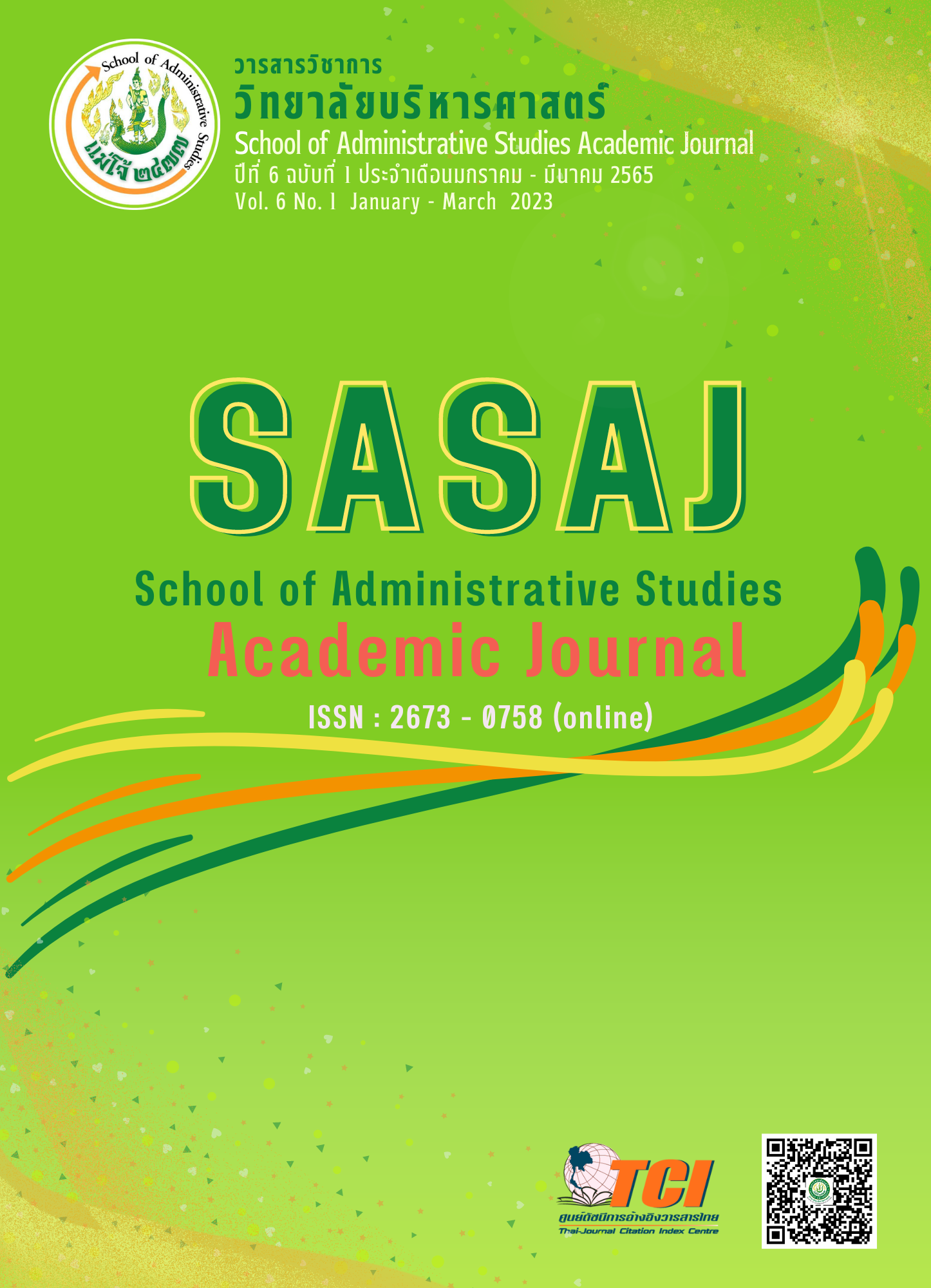A Competency Development of the Temple Abbots for Administration of Community and Temple
Main Article Content
Abstract
The competency of Administrator Monks is essential for developing temples, people, and communities. Therefore, the development of the competence of the Administrator Monks is a necessary condition. This research study was to develop Administrator Monks’s competence and evaluate their development with the objectives of studying the development of monks’ competency and learning lessons from the development of monks’ competency in temple and community management. Out of 80 Sangha-thikarns in Mae Rim District as the population, 5 of them were selected by Simple Random Sampling Technique when it was limited that the sampling error was not more than ± 5% and the confidence interval was 95%. A competence training seminar course was constructed for the samples, and the data were collected from them through in-depth interviews, group interviews, and a panel discussion to exchange knowledge. The data were then analyzed by Content Analysis.
It was found that the competence of the Sangha-thikarns in the temple and community management could be classified according to the Competency Dictionary as follows: 1) Pariyat-dharma is the knowledge of the principles of temple and community administration and knowledge of Dharma principles that support the work of the monks in managing temples and communities, 2) Pathibat-dharma or practical skills and abilities of monks in temple and community management which consists of the ability to communicate and transmit the Dharma principles, the ability to use technology media and the ability to
coordinate; and 3) Pathivet-dharma is the result of both the knowledge and practical skills to form the internal characteristics of the monks that are expressed include ability to adapt themselves and the proper behaviors of the monks These competencies contributed to the promotion of monks to be the Sangha-thikarns who played the role of abbots. Besides, these competencies should be developed among the new generation of monks to be Sangha-thikarns who understand and are ready to work in managing the temples following the roles and duties of the Sangha-thikarns. The critical process is to develop the competence of these monks through work processes or community activities called learning or development through practice.
In addition, it was found that the lessons learned from the evaluation of the competency development of the monks were as follows: 1) the monks had knowledge and understanding of the principles of temple management and knowledge of the Buddha Dharma that supports the work of the Sangha at the advanced level and able to apply Buddhist principles to apply and communicate with the community very well; 2) they had the ability to communicate to convey a variety of dharmas, and had strategies and used more communication channels; 3) they had knowledge and ability to use more technological media, had skills and used online communication to support the work of temple management systematically, and were able to think critically and teach others; 4) they had the ability to coordinate by using both online networking and community organizations and educational institutions better; 5) they had the ability to adapt themselves, which was a competence that the Administration Monks realized and could dominate and adapt to the community with working through technological media at an advanced level until being accepted and 6) they had the ability to place oneself appropriately at an advanced level until gaining trust from community dwellers and co-workers.
Article Details

This work is licensed under a Creative Commons Attribution-NonCommercial-NoDerivatives 4.0 International License.
ลิขสิทธิ์
References
กาญจนา แก้วเทพ และ กนกศักดิ์ แก้วเทพ. (2530). การพึ่งตนเองศักยภาพในการพัฒนาชนบท. ปทุมธานี: เจนเดอร์เพรส.
ชัยพร วิชชาวุธ. (2545). Competency-based Human Resource Management. ในสมาคมจิตวิทยา ประจำปีสมาคมจิตวิทยาแห่งประเทศไทย. กรุงเทพฯ: โฟโต้ ช็อป เอ็กช์เพรส.
ชัยวิชิต ชยาภินนฺโท. (2559). รูปแบบการเสริมสร้างสมรรถนะของพระธรรมทูตไทยในการเผยแผ่พระพุทธศาสนาในทวีปยุโรป (วิทยานิพนธ์ปริญญาดุษฎีบัณฑิต). มหาวิทยาลัย มหาจุฬาลงกรณราชวิทยาลัย, เชียงใหม่.
ชาติชาย ณ เชียงใหม่. (2544). การบริหารการพัฒนาชนบทเพื่อเสริมสร้างความเข้มแข็งของชุมชน. กรุงเทพฯ: บริษัทเวนจูรี่.
ปาริชาติ วลัยเสถียร. (2543). กระบวนการและเทคนิคการทำงานของนักพัฒนา. กรุงเทพฯ: สำนักงานกองทุนสนับสนุนการวิจัย.
พระธรรมปิฎก (ป.อ.ปยุตโต). (2543). กระบวนการการเรียนรู้เพื่อพัฒนาคนสู่ประชาธิปไตย. กรุงเทพฯ: โรงพิมพ์มหาจุฬาลงกรณ์วิทยาลัย.
พระไพศาล วิสาโล. (2546). พุทธศาสนาไทยในอนาคต แนวโน้มและทางออกจากวิกฤต. กรุงเทพฯ: มูลนิธิสดศรี–สฤษดิ์วงศ์.


